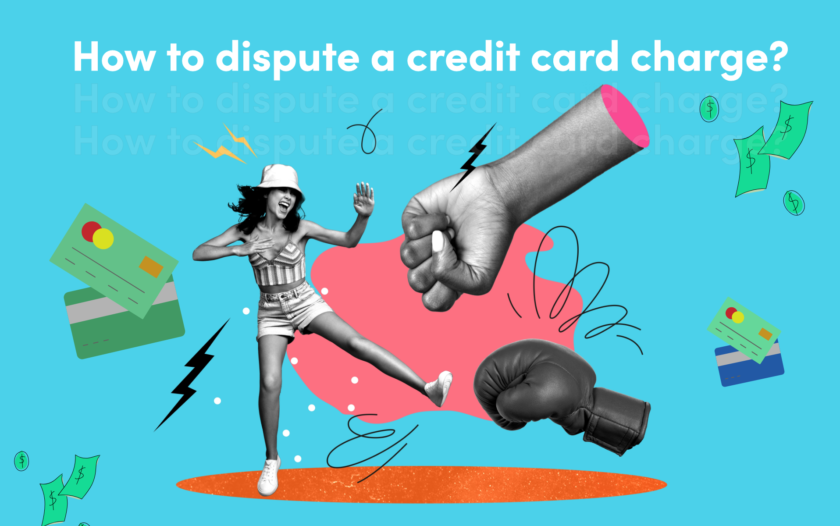Disputing a Credit Card Charge – What You Need to Know
About Trevor
Trevor Mahoney is a financial services writer and content creator based out of Los Angeles, California. He holds a Bachelors of Science in Finance from Santa Clara University. In his free time, he enjoys hiking and lounging on the beach.
Read full bio
At a Glance
Logging into your credit card account only to see a major expense listed that you did not make can be a concerning experience. The last thing anybody wants is for a criminal to run rampant with their credit card. This can lead to problems with your credit score which can take a long time to resolve, even when the credit bureaus understand fraud was involved. Therefore, learning how to dispute a credit card charge as soon as you notice is of paramount importance.
In this article, you’ll learn:
How can you dispute a credit card charge?
When looking at how to dispute a charge on a credit card, there are a number of different steps that must be completed. The most important of these steps are as follows:
1. Review charge details
First and foremost, gather all relevant information related to the fraudulent charge including where it occurred, the amount, and other applicable details. Also, be sure to take a minute to contact anyone who has access to the card to ensure that they are not responsible for the charge.
2. Contact the merchant
To dispute a charge on a credit card, you should contact the merchant where the purchase was made. If caught soon enough, they may be able to reverse the charge before it actually hits your statement and is set in stone.
3. Gather evidence
While you are completely certain you did not make the charge you are seeing on your card, a third-party such as your card issuer will not just take you at your word. Gather any potential evidence, such as the location of the expenditure followed by your location, to ensure you have a strong chance of overturning the charge.
4. Contact your credit card issuer
Finally, if the charge has hit your account, contact your credit card issuer to inform them that fraud has occurred on your account and to dispute the charge. Disputing a credit card charge will require reaching out to the issuer and informing them which specific charge is fraudulent. They may also ask you to double-check that the expenditure wasn’t yours.
When should you dispute a credit card charge?
When considering how to dispute a charge on a credit card and when to do it, the answer is right away. Once you have noticed the fraudulent payment you should immediately contact the merchant and then the credit card issuer. The longer it goes undisputed, the more chances the criminal has to make payments using your card number.
How long do you have to dispute a charge?
Unless fraud was involved, you will have 60 days from the time the charge appears on your credit card statement to dispute the card. After this time period has passed, you will have to accept the charge that occurred.
Writing an effective dispute letter
When writing a dispute letter for a certain charge on your credit card, it’s important to provide all evidence you have gathered related to that charge. Whether it’s the location of the charge, your spending habits, where you were at the time of the expense or other similar factors, the more details you provide the better.
Does disputing a charge affect your credit?
Filing a dispute for a charge on your credit card will not impact your credit score in any way. However, if your dispute is accepted and a fraudulent charge which hurt your score is adjusted or removed, it’s possible your score will be adjusted.
What happens if a dispute is denied?
If a credit card charge dispute is denied, the credit card charge in question will remain on your account. Your credit card issuers will also send you a notice that explains why the dispute was denied and any other applicable information.
FAQs
When considering reasons to dispute a credit card charge, you may find yourself in a situation where you are disputing a charge you did indeed authorize. However, if the amount was not accurate and you have a receipt proving so, you can certainly dispute a charge that you made. Assuming you have all the correct evidence in place and necessary documents, the average chance of overturning a charge is around 65% to 75% unless proven fraud has taken place. Yes, a merchant can appeal a chargeback through represented if they believe the chargeback to be illegitimate.









